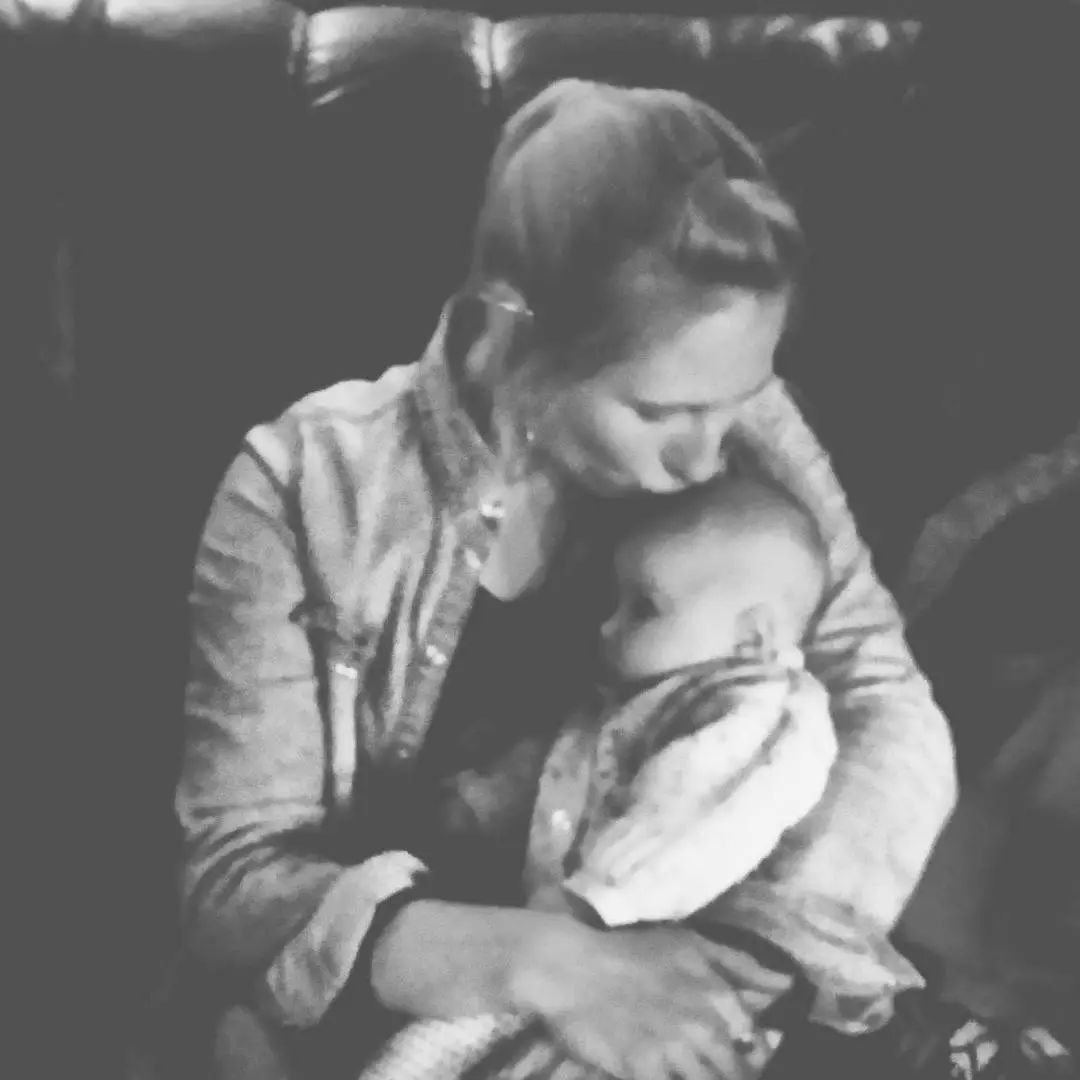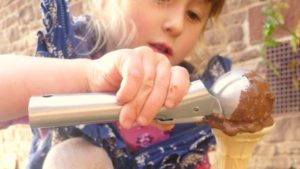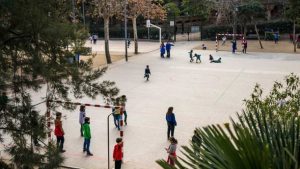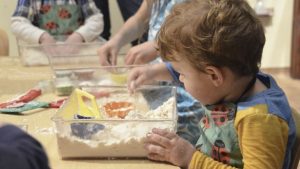When we were kids, being sent out to play by mom or dad was hardly an uncommon concept. Those kinds of free play opportunities are far less common for our children, and there’s a few reasons for it. Overexposure to negative media has led to a false belief that the world is less safe now than it was decades ago. Some schools are also cutting back on recess time in order to push educational development. On top of that, after-school activities like clubs and sports can leave kids with minimal unstructured free time.
Science has demonstrated that play – particularly unstructured free play – is essential to healthy childhood development. In the face of busy schedules and schools that value test scores over our kids’ mental health, it’s crucial that we prioritize and protect play. We’ve examined 21 evidence-based benefits of unstructured free play to demonstrate the science behind their need to run free and the ways it benefits their growth.
Play Science (Infographic)

Examining the Evidence
This roundup of 21 compelling studies shows just how vital unstructured free play is for childhood development.
1) Promotes Physical Growth and Development
The desire for our children to grow up healthy and strong is one we all share, and offering opportunities for kids to engage in physical free play from a young age can influence their habits and make them naturally active people.
As one 2012 study establishes, a lot of the games kids play during their unstructured time are physical, giving them a healthy developmental boost that gives them an advantage over kids who are sedentary. Regular physical activity is key to avoiding childhood obesity, which can have lifelong health consequences. Encouraging some amount of unstructured free play daily can help kids learn to love being active.
Key study/paper: Josie Gleave, Issy Cole-Hamilton. (2012). “A literature review on the effects of a lack of play on children’s lives”. Play England.
Source: playengland.org.uk/media/371031/a-world-without-play-literature-review-2012.pdf
2) Supports Optimal Cognitive Performance
School can be hard on kids, and educators now understand that most problematic classroom behaviors aren’t simply kids being “bad” – they’re bored, frustrated, overwhelmed, tired, hungry, or something else.
Recess offers kids an essential midday break from the sometimes intense information intake of classroom learning. One 1997 study on recess reduction in the US and UK argues that there’s empirical evidence that the valuable unstructured free play our kids get during recess time helps them behave better in the classroom, improving their attention span and helping them max out their cognitive abilities – all excellent reasons to fight hard against reductions to recess time.
Key study/paper: Pellegrini A, Bjorklund D. (1997).” The role of recess in children’s cognitive performance”. Educational Psychologist. 32:35-40.
Source: academia.edu/16770831/The_role_of_recess_in_childrens_cognitive_performance
3) Boosts Imagination and Creativity
The kind of imagining and pretending our young children do is developmentally significant – it’s no coincidence that so many toys for the 3 – 5 set are geared toward pretending and imitating adults in their basic daily activities.
Several studies, including a 2013 review of the impact of pretend play on child development, suggest that engaging with the non-literal pretense of being someone else and playing a role is one of the first steps that young children take outside of their own identity, and it opens the gates to more dynamic, creative and empathetic thought processes. When children begin to understand and embrace the concept of being someone else, they understand that other people have unique experiences and feelings, and begin to connect with other people emotionally as individuals.
Key study/paper: Angeline S. Lillard et al. (2013). “The Impact of Pretend Play on Children’s Development: A Review of the Evidence”. American Psychological Association’s Psychological Bulletin, 139(1):1–34.
Source: apa.org/pubs/journals/features/bul-a0029321.pdf
4) Tackles Fears and Phobias
Childhood fears can be significant and life-altering, and some can stem from issues that kids are struggling to process. It’s an issue that many parents struggle to handle empathetically, wanting to proceed in a way that won’t seriously traumatize their kid.
One 2011 journal on evolutionary psychology suggests that allowing children to engage in age-appropriate risk taking during unstructured free play is a possible way to allow them to disconnect from the intense anxiety they feel when dealing with their fears and phobias. By taking small chances and succeeding, kids are able to gradually build their confidence and feel less fear about more significant issues.
Key study/paper: Bartes E, Sandseter H. (2011). “Children’s Risky play from an evolutionary perspective: The Anti Phobic effects of thrilling experiences”. Evolutionary Psychology, 9(2):257-284.
Source: journals.sagepub.com/doi/full/10.1177/147470491100900212
5) Nourishes Psychological Wellbeing
Adults aren’t the only ones vulnerable to anxiety, depression, and stress. It’s not surprising that kids are also falling victim to serious mental health issues, with overcrowded schedules, pressure to succeed and limited time to decompress acting as wolves at the door.
An academic database review correlating nearly two decades of research on the psychological benefits of nature play for children and teens found that in about half of cases, opportunities for unstructured play in nature offered statistically significant improvements for common mental health issues. These included depression, anxiety, attention deficit disorder and others.
Key study/paper: Suzanne Tillmann et al. (2018). “Mental health benefits of interactions with nature in children and teenagers: a systematic review”. J Epidemiol Community Health, 72:958-966
Source: jech.bmj.com/content/72/10/958
6) Improves Self Advocacy and Confidence
One of the first things we have to learn to get by in the world is how to stand up for ourselves. That’s why it can be so heartbreaking to see our brilliant kids struggle with self confidence, especially when we know what they’re capable of.
As one 2007 scholarly review by the AAP indicates, uninterrupted free play lets kids create their own worlds where they’re in control. They also have chance to engage in negotiation, share their ideas, solve problems and resolve interpersonal conflicts. This allows them to stand up for themselves more readily and confidently. Some social skills can really only be learned by doing, and opportunities to develop socially on their own terms can help kids feel more self-assured.
Key study/paper: Kenneth R. Ginsburg. et al. (2007). “The Importance of Play in Promoting Healthy Child Development and Maintaining Strong Parent-Child Bonds”. The American Academy of Pediatrics (AAP), 119(1).
Source: pediatrics.aappublications.org/content/119/1/182.full
7) Boosts Conceptualization and Intuition
We learn about the world by engaging with the world. It’s how our ancestors discovered fire and made the wheel, and it’s how our kids learn new things and improve their ability to conceptualize.
A 2017 developmental psychology study demonstrates that free play is a time when kids learn conceptual thinking. Unaided exploration of their worlds has been shown to improve our kids’ ability to develop conceptual structures wherein they grasp one idea and are able to extrapolate further on its basis. This allows them to comfortably develop an intuition and higher thought process that aids them on their learning journey. Being able to conceptualize is one of the basic building blocks of logical thinking, and the sooner kids hone in on it the better.
Key study/paper: Sim Z L, Xu F. (2017). “Learning higher-order generalizations through free play: Evidence from 2- and 3-year-old children”. Developmental Psychology, 53(4), 642-651.
Source: psycnet.apa.org/record/2017-12497-003
8) Strengthens Parent-Child Bond
We all want to know our children as close to fully as possible – doing so allows us to love and care for them in the way that speaks most to their unique needs. However, when our kids are young, getting them to sit still for long enough to brush their hair is a challenge, to say nothing of asking them to tell us their deepest thoughts.
One 2007 scholarly review from the AAP hints at free play as a wonderful source of bonding for parents and children. As parents observe their children free and at play, they may begin to communicate in new ways and express sides of themselves that are unfamiliar to parents. Seeing the way our kids imagine and play when they’re running the show can show us what really matters to them and what’s on their minds, creating that deeper bond.
Key study/paper: Kenneth R. Ginsburg. et al. (2007). “The Importance of Play in Promoting Healthy Child Development and Maintaining Strong Parent-Child Bonds”. The American Academy of Pediatrics (AAP), 119(1).
Source: pediatrics.aappublications.org/content/119/1/182.full
9) Develops Empathy and Connection
The primary way that children develop emotional responses like empathy and learn to feel connection to other people is by having authentic social experiences. Unstructured free play is a time when children can connect with peers in a way that may provoke any number of emotions, including those that can be difficult to process, like anger and sadness.
Learning how to appropriately process and express those feelings and empathize with them in others is a huge step in their social development that one 2005 scholarly review suggests free play provides. As children learn to control their own emotions, they can understand the difficulties others may feel in doing the same thing, and may feel driven to view situations with empathy rather than frustration.
Key study/paper: Burdette HL, Whitaker RC. (2005). “Resurrecting Free Play in Young Children: Looking Beyond Fitness and Fatness to Attention, Affiliation, and Affect.” Arch Pediatr Adolesc Med, 159(1):46–50.
Source: jamanetwork.com/journals/jamapediatrics/fullarticle/485902
10) Aids Healthy Mental Development
Mental health is a life-altering issue for people of any age. The last thing we want is to see our kids struggle, so taking steps to ensure their mental development is healthy is paramount.
We already know that adults are hardly the only one who struggle with mental health concerns, but 2018 research into the science of recess has also revealed that there’s a correlation between the decline in free play for children that’s happened over the past few decades and the rise in self-harm, anxiety and depression they’re experiencing. The connection between nature-based free play and potential improvements in mental health concerns speaks volumes about why play is essential and must be protected.
Key study/paper: Megan L. Frank et al. (2018). “The differences in physical activity in preschool children during free play recess and structured play recess” Journal of Exercise Science and Fitness 16(1), 37-42.
Source: sciencedirect.com/science/article/pii/S2352464217300925
11) Prepares Kids for Challenges in Later Life
Life is full of challenges; once one is handled, another one is quick to take its place. The way you respond to those challenges is the definition of your character, which is something that starts to form young.
Having the mettle to stand up to your challenges is something that begins in childhood, as one 1998 study on neuroscience, play and child development indicates. The kind of socialization that kids engage in when during unstructured free play includes building hierarchies, negotiating with peers, solving problems, learning to manage emotions and gaining skills at communicating with different types of people. These are the building blocks to a successful social life and career, and missing out on these lessons can be seriously detrimental.
Key study/paper: Frost, J. (1998). “Neuroscience, Play, and Child Development”. Paper presented at the IPA/USA Triennial National Conference
Source: files.eric.ed.gov/fulltext/ED427845.pdf
12) Relieves Stress and Anxiety
When you compare the average schedule of today’s kids with the one we had when we were young, it’s not hard to see why stress and anxiety seem to be so prevalent. Their class times are longer, their rest periods are shorter, their after school time is filled up with activities, and once they finally get home, they’ve got a couple hours of homework to do.
As one 2014 paper argues, the experiences children have during spontaneous free play improve their coping skills when it comes to day to day anxieties and stressors. Play of this type can also add to kids’ subjective assessment of their own well-being. If a spin class or a round of golf sound like a great way to de-stress after a long day, you can see why playing tag with friends might translate similarly for your kiddo.
Key study/paper: Jane Hewe. (2014). “Seeking balance in motion: The role of spontaneous free-play in promoting social and emotional health and early childhood care and education”. Children, 1(3):280-301.
Source: mdpi.com/2227-9067/1/3/280/htm
13) Helps Prevent Obesity
Childhood obesity can have both acute and chronic consequences that can last into adulthood, and it’s a condition that pediatricians strive to help their patients avoid. Making wise dietary choices is essential, but physical activity is perhaps the most important component in reducing the risk of weight gain.
An increase in outdoor play is a frequent suggestion doctors offer, and research, including one journal on the differences between structured and unstructured recess, has demonstrated the connection between free play and increased physicality. Physical games help kids to raise their metabolic rate and expend energy, burning calories and reducing overall feelings of fatigue.
Key study/paper: Megan L. Frank et al. (2018). “The differences in physical activity in preschool children during free play recess and structured play recess” Journal of Exercise Science and Fitness 16(1), 37-42.
Source: sciencedirect.com/science/article/pii/S1728869X17301338
14) Improves and Balances Mood
If your kiddo is prone to the occasional temper tantrum, you’re far from alone. Some kids take longer than others to learn to regulate their moods.
When legitimate health concerns have been ruled out, one 2001 study on mood change through physical exercise suggests that moderate-to-vigorous physical activity that can take place during unstructured free play helps children to improve and regulate their mood while reducing negative feelings. This can lead to a decline in the frequency of their temper tantrums. Physical activity is a great way to re-target those adrenaline surges, giving kids embarrassed by their meltdowns a helpful coping strategy.
Key study/paper: Williamson D et al. (2001). “Mood Change through Physical Exercise in Nine- to Ten-Year-Old Children”. Perceptual and Motor Skills, 93(1).
Source: journals.sagepub.com/doi/abs/10.2466/pms.2001.93.1.311
15) Builds Emotional Resilience
Emotional pain happens to everyone; it’s part of living, loving and being a social being. As much as we don’t want our kids to feel it, we also want them to be ready for it and able to cope with it when it does occur.
As we’ve established, the kind of socialization that happens during free play opens kids up to a lot of new emotional experiences – as a 2012 exploratory study of refugee children from Beirut demonstrates, however, unstructured play is a tool that children use both to explore their environment and engage with themselves and their internal emotional challenges. Research has shown that children use play to cope in adversarial circumstances, helping them to boost their emotional resilience.
Key study/paper: Fearn M, Howard J. (2012). “Play as a resource for children facing adversity: an exploration of indicative case studies”. Children and Society 26(6), 456-468.
Source: onlinelibrary.wiley.com/doi/abs/10.1111/j.1099-0860.2011.00357.x
16) Nurtures Responsiveness and Proactivity
The way our kids respond to us and to other people is a foundational part of their social development. Normal, healthy kids are active, responsive and playful, but when kids are given no opportunities to play, they’re unable to thrive and don’t respond to socialization or stimulus in the same way.
Without the mental growth that play provides for children, research performed in a 2002 child development study shows that psychomotor development of babies and children deprived of play can be seriously hampered. The more kids play, they more they will want to play, and and playtime has been shown to drive their desires for independence, responsiveness, activity and playfulness. By contrast, when kids are deprived of play, they’re more likely to have trouble coping with stress and feeling socially confident.
Key study/paper: Taneja V et al. (2002). “Not by bread alone: impact of a structured 90-minute play session on development of children in an orphanage.” Child Care Health Dev, 28(1):95-100.
Source: ncbi.nlm.nih.gov/pubmed/11856192
17) Fosters Independence and Sense of Freedom
As much as we want to hold our babies close forever, part of being good parents is acknowledging the importance of their sense of independence and feelings of freedom. Growing up is healthy, and it’s something they should want to do.
A 2011 paper on children’s motivations and barriers to independent play shows that kids around ages 10 – 11 find value in independent play, which alleviates boredom and gives freedom from adult-mandated structured activities. It’s a time when many kids find approval from peers more validating than that of parents, which is an important step in their burgeoning independence(even though it’s a rough road for parents).
Key study/paper: Twenge, J. et al. (2010). “Birth cohort increases in psychopathology among young Americans, 1938–2007: A cross-temporal meta-analysis of the MMPI” Clinical Psychology Review 30:145-154.
Source: bmcpublichealth.biomedcentral.com/articles/10.1186/1471-2458-11-461
18. Reduces Risk of Mental Illness
It’s not uncommon to hear peanut gallery comments hypothesizing that “suddenly everyone is mentally ill.” It’s a brash way to make note of the prevalence that mental illness diagnoses seem to have in the current medical landscape, especially for troubled children and teens.
The upsetting truth is that, as infamous 2017 psychopathology research by Peter Gray has demonstrated, not-so-suddenly, the rate of suicidal ideations, depression and anxiety have risen among children, preteens and teens. They’re feeling less in control and sure of themselves. They’re also of a generation whose lives have been largely devoid of extended opportunities for unstructured free play. Kids learn interpersonal skills, develop reasoning and overcome fears when they play on their own, which is why depriving them of the opportunity to do so is so destructive to their mental health.
Key study/paper: Peter Gray. (2017). “The Decline of Play and the Rise of Psychopathology in Children and Adolescents”. Strong’s American Journal of Play 3(4).
Source: The_Decline_of_Play_and_the_Rise_of_Psychopathology_in_Children_and_Adolescents
19. Improves Social Competence with Autism
Independent free play can mean different things for different kids, and free-drawing, painting, sculpting and building are all ways that kids can express themselves in unstructured ways. Spending time building with LEGO blocks is one way that children can engage in creative solo play.
2017 research published in the Disability and Health Journal has demonstrated that for children with Autism Spectrum Disorder, use of LEGO therapy to motivate behavior modification through children’s natural urge to play can sometimes result in improvement in socially competent behaviors and more successful social interactions. For kids with ASD, this can mean an easier time making friendships, having relationships with family members, and finding healthy coping strategies.
Key study/paper: Lindsay S, Hounsell K G. (2017). “A scoping review of the role of LEGO® therapy for improving inclusion and social skills among children and youth with autism” Disability and Health Journal 10(2), 173-182.
Source: sciencedirect.com/science/article/abs/pii/S1936657416301728
20. Leads to Better Sleep Quality
Despite what our kids think, we don’t take them to the park just because we like to watch them do cartwheels. Good, old-fashioned healthy physical activity is great for tuckering kids out, which will find them sleeping deeply through the night.
A 2006 study on the link between obesity and difficulty staying asleep suggests that just as the vigorous physical activity often present during free play can help children sleep more soundly, a sedentary lifestyle could lead to poor sleep quality for our kids. When they get their heart rate pumping during the day, they’re more likely to fall asleep without a struggle and stay asleep until morning.
Key study/paper: Taheri, Shahrad. (2006). “The link between short sleep duration and obesity: We should recommend more sleep to prevent obesity.” Archives of disease in childhood, 91:881-4.
Source: The_link_between_short_sleep_duration_and_obesity_We_should_recommend_more_sleep_to_prevent_obesity
21. Helps Kids Adjust to School Setting
School is our kids’ first real-deal introduction into the world of socialization, expectations, and life away from home. It’s a big transition, and some kids handle it much better than others.
Kids who are used to playing independently have an advantage when it comes to school readiness, according to one 2007 scholarly review on the importance of play in childhood development. It’s suggested that the social, emotional and logical skills that kids begin to master during free play help them adjust more easily to their new school environment. When kids feel self-confident and independent, transitioning into school life is usually simple.
Key study/paper: Kenneth R. Ginsburg. et al. (2007). “The Importance of Play in Promoting Healthy Child Development and Maintaining Strong Parent-Child Bonds”. The American Academy of Pediatrics (AAP), 119(1).
Source: pediatrics.aappublications.org/content/119/1/182.
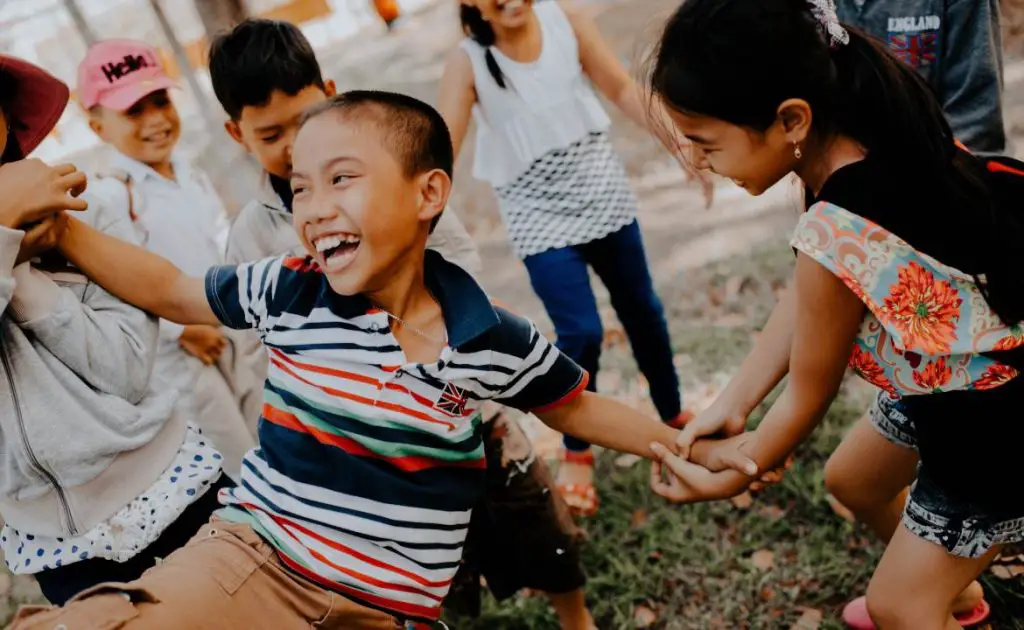
Protecting Play
Whether it’s their physical well being, their mental health or their ability to feel comfortable socially, we want the best for our kids. That’s why protecting free play is so essential – it’s a toolbox that offers them so much of what they need to grow into healthy, happy adults.
We know, it’s not easy. There’s a lot of fearmongering media out there that can leave you afraid to so much as take your child to the grocery store, let alone send them outside to play without an adult. That said, it’s up to us to tackle our learned biases head on. It’s statistically safer for our children to play outside without us than it was for us to do the same without our parents.
It’s also essential that we advocate against the shortening and elimination of recess. Research has shown that children see an active benefit in the classroom environment from the free play they engage in during recess, including a cognitive boost that makes their learning experience more effective.
When we choose free play for our kids, we choose their health, happiness and development. We advocate for their independence, and we cheer for their unique spirit. It’s one of the kindest, most impactful, most beneficial things we can do for our kids. Let them play.

